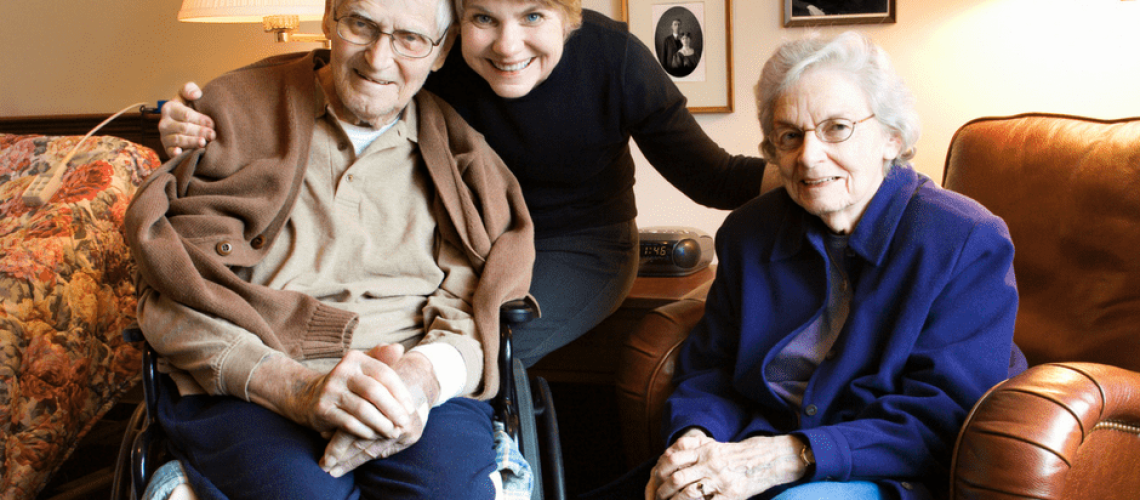It’s never easy to make the transition from being a child, niece, nephew, spouse, or grandchild to becoming a caregiver for an aging relative. You may have to consider issues like housing and transportation, powers of attorney and health care directives, mental health and cognition of your aging loved one, and of course, maintaining your own health and well-being.
About 40 million adults in the United States were considered informal caregivers in 2015, meaning they are family members or friends caring for a loved one, as opposed to professional caregivers. At least 60% of those caregivers are female. In some cases, the situation occurs suddenly and unexpectedly, through accident or sudden serious illness. In other cases, the situation develops slowly, giving the family caregiver time to prepare, such as in cases of dementia or long-term illness.
Here are some steps you can take to make informal caregiving easier:
Evaluate the Situation
If possible, assess whether there are changes you can make that will help your loved one age in place or adjust to a caregiving situation more easily. If stairs have become difficult or vision is a problem, perhaps you could make improvements around the home. If forgetfulness is a problem, you may want to help simplify cooking, assist with medications, and monitor safety to avoid an accident.
If your loved one is resistant to receiving care, it may be time for a serious talk. But always start by listening to concerns, fears, and preferences. Don’t try to persuade. It’s natural for us to be resistant to new ideas when we feel like we aren’t being heard. Make gentle suggestions and offer examples of how a friend or neighbor may have benefited by having a “friend” come to help. You may also need to enlist the help of family members and/or doctors if your loved one is not safe but continues to refuse help.
Caregivers Need to Care for Themselves As Well
Caregiver stress affects nearly all family caregivers experience at one point or another. Long-term caregivers are most prone to experiencing caregiver stress, but short-term caregivers are not immune to it. Recognizing when you’re experiencing caregiver stress is key in overcoming it.
Family caregivers also need to recognize that they may reach a point when they can no longer provide care themselves. Health issues, burn-out, or life changes may make caregiving difficult or impossible, either for a short term or even permanently. In addition, a senior’s needs may become such that care in a facility becomes necessary.
Respite care or overnight care may help caregivers who feel burned out or who need a temporary break from caregiving. More long-term needs may require bringing in a professional caregiver or considering alternative options, such as senior living homes or hospice care. In either situation, the family caregiver may experience guilt, anger, frustration, sadness, despair, or a range of other emotions. Know that these emotional reactions are natural and you are not alone in feeling this way.
Caregivers often risk becoming ill themselves — due to lack of sleep, inadequate nutrition, stress, exhaustion, or depression. It’s important to take breaks to take care of yourself.
County and State Resources
Check with your city, county, and state to see what resources are offered to family caregivers. In Frederick County, the Department of Aging offers programs and resources for seniors and caregivers. Nearby Montgomery County has an office for Aging and Disability Services and the Respite Services. The Maryland Department of Veterans Affairs, the Maryland Health Care Commission, and the Maryland Department of Human Services all offer resources, programs, or referrals to other departments as well.
In Maryland, the quickest way to find needed services is simply to dial 2-1-1. This connects to the Maryland Access Point, a statewide link to health and support services. Finding good support systems is crucial to maintaining a healthy balance that will enable you to care for your loved one. Don’t hesitate to reach out and take advantage of the many support programs that are available to ease the difficult parts of caring for an elderly or disabled loved one.
Additional Reading
Mayo Clinic: https://www.mayoclinic.org/healthy-lifestyle/stress-management/in-depth/caregiver-stress/art-20044784
AARP, Family Caregiving Resources: http://www.aarp.org/home-family/caregiving/qa-tool/info-2016/caregiver-resources-basics.html
Mayo Clinic, Dealing with Resistance: https://www.mayoclinic.org/healthy-lifestyle/caregivers/in-depth/caring-for-the-elderly/art-20048403


